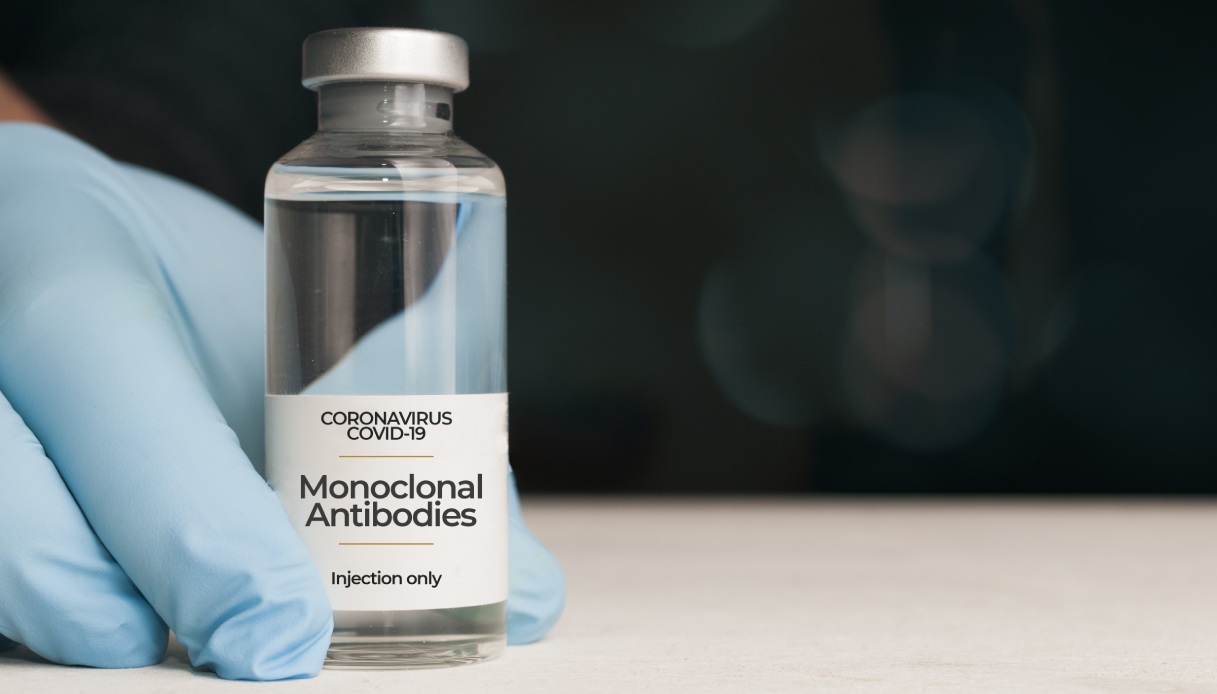Monoclonal anti Covid, at what point are Gsk and San Raffaele

What happened to the Gsk monoclonal antibodies? And what are they studying at the San Raffaele in Milan? All the latest news
Less than a month ago Fabrizio Landi, president of Toscana life sciences (Tls), a public foundation in which Rino Rappuoli, scientific director and R&D manager of Gsk also works, feared for the future of the study on monoclonal antibodies identified and developed by Tls due to the lack of volunteers to carry out the experimentation.
However, the possibility of obtaining anti Covid monoclonals made in Italy does not seem completely over. Another research, in fact, underway at the San Raffaele in Milan, could give results.
THE MONOCLONALS OF SAN RAFFAELE
The San Raffaele hospital and research center in Milan (San Donato Group), writes Il Sole24Ore , five months ago launched a study on monoclonal antibodies with a pool of about ten researchers and one million investments.
The work was carried out on five monoclonals, two of which responded positively and were shown to be able to attack even resistant variants such as Beta and Gamma.
THE NEXT STEPS
Currently the in vitro phase – added the Confindustria newspaper – is giving excellent results against all variants of the coronavirus and, if the next tests confirm it, the path of monoclonals could be a little less uphill, even if Paolo Rotelli, vice president of the San Donato Group, admits: "We are cautious, we are talking about a preliminary laboratory phase, but we are optimistic".
In two or three weeks, according to Il Sole 24 Ore , the monoclonals that have made it (defined as 'cross') will have to be tested again to understand the ability to react to variants. The answer should arrive in about a month.
IF EVERYTHING GOES WELL…
If the outcome were positive, San Raffaele would most likely close a contract with a pharmaceutical company that intends to develop the product in a short time.
“The dialogue – writes Il Sole24Ore – is already open with Italian and European companies. Then eventually we will move on to animal and human experimentation, after which the authorization process will be started at the EMA and Aifa. A journey that takes at least six months, if we go very fast ".
To 'crystallize' the results, the article reads, patent applications have been filed. These results, however, can possibly be updated within six months of the request.
THE MONOCLONALS OF TLS
Returning, however, to the monoclonals of the public foundation Tls, the latest news dates back to about a month ago. "As a citizen I am obviously happy that the number of newly infected in our country is low – said Landi – But now it is very difficult for us to carry out the study".
The President of Tls hoped for the emergency green light from the Italian Medicines Agency (Aifa) in November, but the number of people involved in the phase 2 study, wrote Repubblica , was too low to be able to bring the files to AIFA and ask for the extraordinary authorization.
"We will have to reach 350 people, considering that when the review is done some cases are discarded, before reaching Aifa", hoped Landi.
It was therefore hypothesized to continue abroad with the experimentation.
WHY TLS MONOCLONALS MIGHT NOT MAKE IT
“If we had been a research center – stated Landi – we would have passed the hand earlier, giving a company the task of experimenting. Instead, we also went ahead alone in the studies to make an effective drug available to Italy at practically no price. But we have been slower, we are not a pharmaceutical company, we have made mistakes ”.
Tls, together with Reithera (for its vaccine), as Start wrote , were the horses on which the Conte bis government had aimed to fight against the virus. The Foundation was allocated 380 million euros in total.
THE LIMITS OF MONOCLONALS
Monoclonals – indicated for those who risk having serious problems following the infection – as well as being difficult to experiment because, as Landi recalled, more and more people are vaccinated, they must be administered when the first symptoms appear and it is not yet known what it will be. the course of the disease.
Another difficulty is that, unlike the simple injection required for the vaccine, they must be administered intravenously.
Furthermore, monoclonals should not be considered an alternative to the vaccine but rather a supplement. As the infectious disease specialist Massimo Galli said in an interview with Corriere della Sera : "The therapies we have today (cortisone, Remdesivir, monoclonal antibodies already used against autoimmune diseases) are not fully satisfactory, especially in the advanced stages of the disease".
And finally, last but not least, a single dose – wrote the newspaper – costs the State between 1,000 and 2,000 euros.
MONOCLONALS APPROVED IN ITALY
In Italy, for now, three monoclonal antibodies have been temporarily authorized: the combinations bamlanivamb / etesevimab and casirivimab / imdevimab and sotrovimab. According to an AIFA report of 9 September 2021, 9,021 people were treated with monoclonal drugs.
This is a machine translation from Italian language of a post published on Start Magazine at the URL https://www.startmag.it/sanita/monoclonali-anti-covid-a-che-punto-sono-gsk-e-san-raffaele/ on Fri, 12 Nov 2021 10:12:08 +0000.
